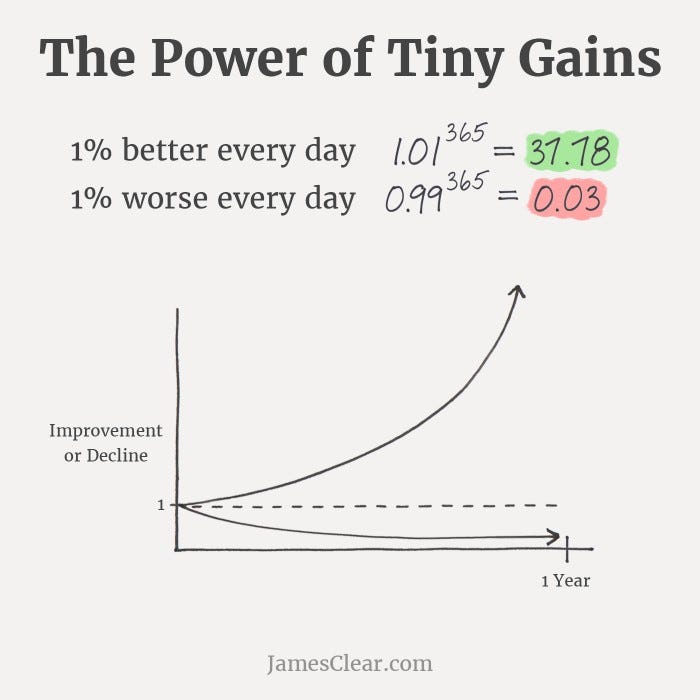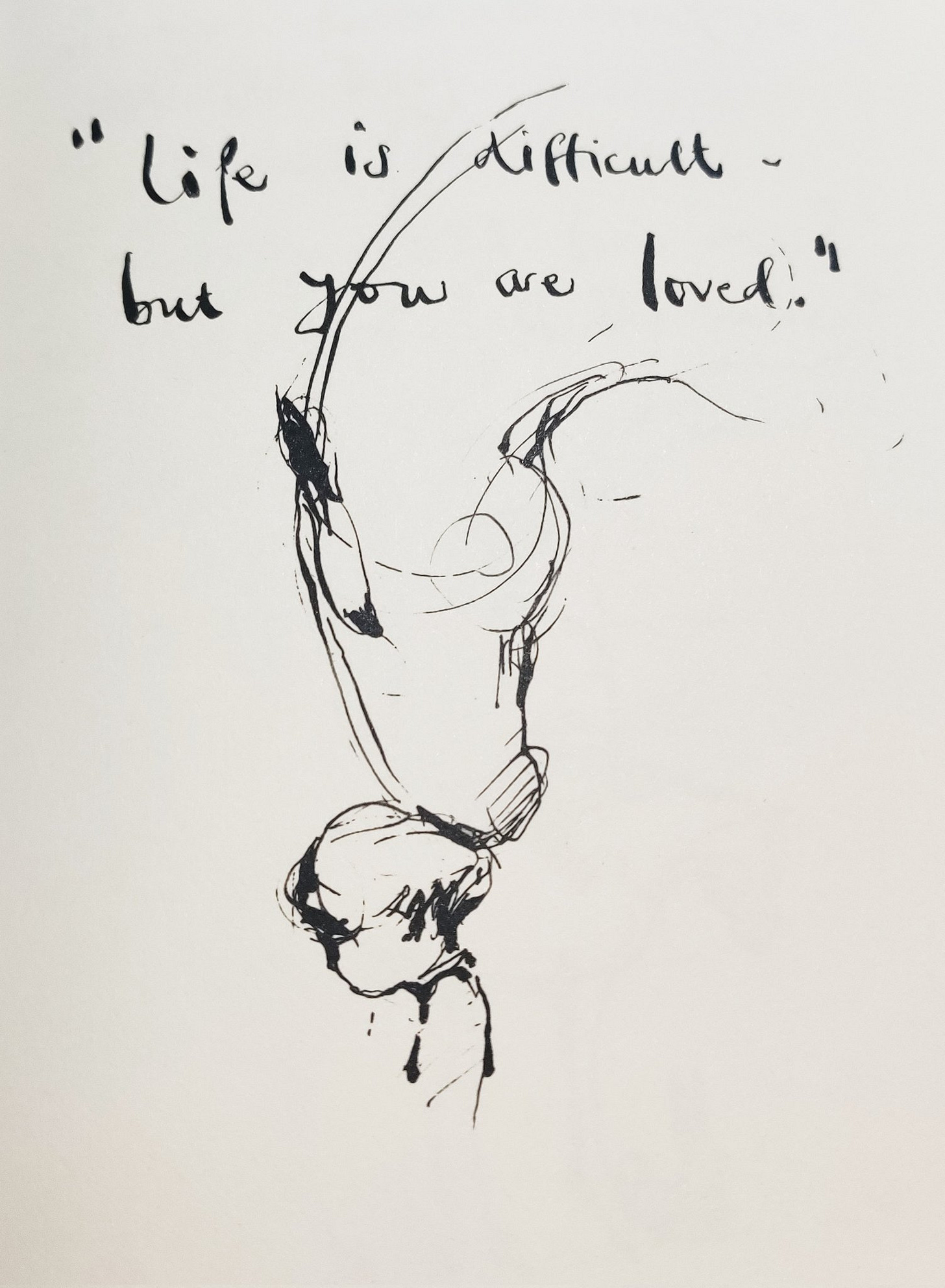Stop beating yourself up for not doing enough
Realistic goals, with smaller, steadier steps are the way forward
A new month always feels like a fresh slate.
It's like a chance to start anew — without past failures and mistakes holding you back. The start of a new day, a new week, a new month, and the big daddy — a new year, function like reset buttons, allowing us to try one more time.
Lately, I've been desperate for these reset buttons. Much as I try, I feel like I could be doing more. Honestly, if it were just a feeling, it'd be alright, but I know I could be doing more — both professionally and personally.
But here's the thing — knowing something doesn't mean it's true.

You and I both know that it's impossible to expect and deliver pre-pandemic levels of productivity and success. Every single month has been challenging differently in the last year and a half. So, even if you argue that millions of us are vaccinated, millions more immune after contracting the virus, you can't deny that we've been living in fight or flight mode for over eighteen months. Some of us aren't even fully vaccinated yet.
Still, we expect ourselves to miraculously do way better every new day.
Today, as we enter into a month, I thought it'd be a good idea to examine why we hate setting realistic goals and why we need to learn how to.
Go big or go home
We all set daily goals, whether we know it or not. Depending on our capacity (and the number of meetings we've got to attend that day), we can knock out a sizable chunk of the tasks on our to-do lists on an average day. Most days, anyway.

I like to-do lists. I have several for different categories across apps and platforms. I've spent a long time refining the way I'd like to work — too long. I think I've spent more time scheduling a task and trying out different productivity methods — it would've been quicker to simply do the damned thing. Unfortunately, my brain doesn't work like that.
And so, my love-hate relationship with to-do lists continues. What I find fascinating about this entire exercise is that I know how much I can get done in a day. I know my limits. But every single night, as I move my overdue tasks to the next day, I have a renewed sense of self. Tomorrow I'll crush ten tasks instead of my usual three.
It doesn't take a genius to see that I am setting myself up for failure every day. Unfortunately, I don't wake up a new person (or at least, I haven't yet), so I will still only be able to do my usual three things.
Here's the kicker, though — my expectations cause me to fumble. The long-ass to-do list I made with some delusional hope at three am the previous night mocks me now. Every time I look at the list, I hate myself and my limited capacity — I've managed to do ten tasks before, why can't I do it every day?
The limit does not exist (but it should)
Let's look at this another way.
If I had decided to attempt 3.5 or 4 tasks the next day, I probably wouldn't have felt so overwhelmed. In fact, after finishing my usual three tasks, I might have looked at my almost empty to-do list and tried to do as much of the next task, and I would've been okay.
What we need to do to be better is be honest with ourselves. We need to acknowledge our limits. I cannot do three tasks every day — sometimes, I can only get two or one done. Other things take priority — whatever I need to do to clear out brain space.
But I hate that. I hate knowing my limits, and I hate acknowledging them even more — why can't I do more? I'm sure I have the capacity, and I can see others who are worse than me do more — maybe tomorrow's the day.
The vicious cycle continues.
It would bode well for everyone involved to simply set more realistic goals. Smaller, more manageable goals are steady progress markers. But obviously, they're not big or grand, and you don't feel like mentioning this small, tiny increment you've made.
This is why I've been slowly leaning into James Clear's theory of one percent better. Consistent improvement.
The idea is simple. Try to be 1% better every single day. That's it. Not 100%, not 50% — just 1%. It's small, it's negligible, it's almost not worth it, you say.
Turns out, you'd be surprised how far small steps can take you.
If you get one percent better each day for one year, you'll end up thirty-seven times better by the time you're done. — James Clear
In fact, small and easy is why I like his newsletter1 so much too. Unlike mine (and many others'), which is long and wordy, he sends 3 ideas, 2 quotes, and 1 question every Thursday. Even with my overflowing inbox, I make the time to read it because it hardly takes me 1 minute.
Small. Steady.
You nice, keep going
I want to take this one step further. One percent better sounds really nice in theory, but that means I won't be able to see my growth for some time. I want to, and I invite you to take the time to recognize your highs — the goals you did manage to conquer this week — even if it's just the one.
Too often, we chase that productivity high. We want a long list of checked off tasks, symbols of how much we've managed to do in a single day. But it's also nice to take a moment to celebrate and appreciate yourself for whatever you got done, you know?
Smaller, realistic goals are better for us all in the long run. Less frustration, annoyance, and anger at ourselves. A clearer understanding of how much we can do and when we need to stop.
Society has this weird obsession with hustle culture and toxic productivity. That's made us lose sight of our abilities and energy levels. We're so busy trying to match other people and their successes that we don't realize we're setting ourselves up for disappointment. Some self-appreciation and understanding will go a long way to mitigate that.


All this is easier said than done, of course.
I'll continue chasing reset buttons. But I think I'll (try to) be kinder to myself and be more mindful of how much I can accomplish. After all, the road to growth is a slow and steady one.
"Little drops of water,
Little grains of sand,
Make the mighty ocean
And the pleasant land.
So the little minutes,
Humble though they be,
Make the mighty ages
Of eternity."
This edition is a very accurate picture of my mental state right now. I am trying very hard to be okay with the fact that I cannot do as much as I did pre-pandemic and before I contracted Covid-19.
But there’s always a silver lining to celebrate. For example, I’ve realized I enjoy writing about productivity and how that ties into our mental health and career (especially with a focus on freelancing).
I’d love to know what you’d like to see more of in this newsletter. Any topics I should cover? Anything specific you want me to explore within books, freelancing/career, and the general pop culture umbrella? Please hit reply to this email or use the anon feedback form below to let me know! x
I’m also gathering reader testimonials to add to my new About page, so if you’ve liked an issue or two — tell me about it? I’d love to showcase your words (and link back to your work too!).
What'd you think of this issue?
💜 Liked it - 😶 No thoughts - ❌ Didn't like it
Weekly faves! 💌
My new productivity hack (for the next few weeks before I get bored of it) is to eat the frog. 🐸 I took this neat little quiz and found out that’s the best way for me to give. Will report on results if it changes anything.
More work music! Flow State will send you two hours of instrumental music to work to every weekday. 🎵
A fun but relatable little comic about The Planning Fallacy — our tendency to underestimate how much time a task will take us. 💭 Plus, how to avoid/fix it.
Here’s a helpful article that explores why setting smaller goals is better and how to break bigger goals into smaller, more doable steps. 📈
Thinking of turning over a new leaf this month? Trying to do that can hinder you more than you think. Good read about new-leaf thinking vs existing-leaf thinking. 🍃
Speaking of being kind to yourself and those around you, a friend (who is a phenomenal musician) lent me Charlie Macksey’s The Boy, The Mole, and The Horse. 📖 What a lovely read, I highly recommend you pick it up.
Please tell a friend or two if you liked this edition of Perceptive Madness — word of mouth helps me reach more readers! Don’t forget to hit the 💖!
See you next week!
Referral link so I can get a link to some really nice speeches — no money involved. It’s a free newsletter.






